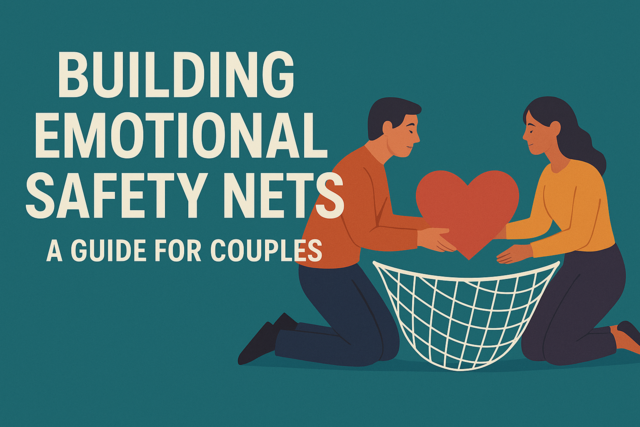Online Class: The Compassionate Family — Building Empathy Through Generations

-
15Lessons
-
22Exams &
Assignments -
5Hours
average time -
0.5CEUs
Course Description
Imagine your family as a finely woven tapestry, each thread representing a unique legacy of love, understanding, and connection. Envision a future where these threads not only remain intact but strengthen over generations, connecting hearts with an unbreakable bond of empathy. Welcome to "The Compassionate Family: Building Empathy Through Generations," a transformative journey crafted explicitly to empower families, enhance communication, and elevate understanding across generations. This is not just an online course; it is a life-altering odyssey set to redefine your family's dynamic, infusing it with warmth, compassion, and a capacity for genuine connection that will ripple through time.
As you embark on this enlightening voyage, you will uncover the profound science that fuels familial empathy. Delve into the captivating world of neurotransmitters like oxytocin, serotonin, and dopamine, the silent architects of our emotional connections. These powerful agents create enduring changes that encourage deeper empathy and understanding within your family, unraveling the mysteries of emotional bonding and communication that transcend mere words.
But the course is not just an exploration of science; it is a heartfelt invitation to an empathetic transformation. Picture yourself effortlessly navigating the complexities of intergenerational communication, transcending barriers that once seemed insurmountable. You will come to master the art of listening with intent, understanding without judgment, and speaking with compassion—offering your family a harmonious discourse that has the power to soothe wounds, heal divides, and celebrate the beautifully diverse narratives that each member brings to the family tapestry.
Unlock the latent potential of emotional intelligence right from the heart of your home as you delve into its pivotal role in child development. As a caregiver, mentor, or educator, you will cultivate environments where emotional fluency is second nature, laying the groundwork for resilience and empathetic perspectives in future generations. These are not just skills but time-honored tools that will empower your family to thrive academically, socially, and emotionally.
In this immersive experience, you will engage with practices that take empathy beyond conversation and into action. Witness the transformative power of family volunteering, where altruism becomes a shared bond, strengthening your family's connection with each other and the world. By proactively contributing to your community, your family solidifies its role as an entity of positive change, setting an inspiring example for others to follow.
But what sets "The Compassionate Family" apart is its deep appreciation for cultural heritage and its impact on empathy. Delve into the rich tapestry of traditions that shape your family's empathetic bonds, and explore how understanding cultural nuances can unite generations in a shared journey of growth and learning. Immerse yourself in communal living experiences and spiritual practices, drawing from these age-old wisdoms to reinforce a family culture embedded in compassion and understanding.
The unique narrative of your family story finds new meaning through deliberate, empathetic storytelling. This course invites you to weave together the powerful threads of family narratives, where shared memories and diverse perspectives form the backbone of familial empathy. Unlock the transforming magic of storytelling, strengthening your familial bonds as you explore your identity through the stories of those who walked before you.
Embrace the future with optimism as you craft visionary families, where core values and goals act as beacons guiding you through life's challenges. Cultivate a family mission statement that encapsulates your collective aspirations, striking a perfect harmony between tradition and innovation. This mission becomes your family's anchor, a reliable guide harnessing the strength of empathy and shared objectives to navigate the world's ever-evolving landscape.
"The Compassionate Family: Building Empathy Through Generations" offers more than knowledge—it provides a transformative experience and a lifelong toolkit that will elevate familial bonds to new heights. Prepare to nurture a legacy of empathy, rooted in love and mutual respect, that you will proudly pass down through the ages. Your journey to creating a compassionate, empathetic family begins here. Enroll now, and transform the way you connect with those you love most.
- Business
- Business Ethics Courses
- Harassment Prevention Courses
- Human Resources Certifications
- Management
- Aromatherapy Courses
- Caregiver Courses
- Career Development Courses
- Communications Courses
- Confidence and Self Esteem Courses
- Healing
- Human Anatomy Courses
- Medical Skills
- Health & Medicine
- Nutrition
- Marketing
- Microsoft Office Certification Courses
- Life Coaching Courses
- Self-Improvement
- Small Business Certifications
- Safety
- Writing Improvement
- Business Writing Courses
Course Lessons
Lesson 1. The Role of Oxytocin in Family Empathy and Bonding
 Lesson discussions: Reasons for Taking this Course
Lesson discussions: Reasons for Taking this Course Complete: Lesson 1 Activity
Complete: Lesson 1 Activity Assessment: Lesson 1 Review Exam
Assessment: Lesson 1 Review Exam
Lesson 2. Empathy Begins at Home: Unlocking Family Communication
 Complete: Lesson 2 Activity
Complete: Lesson 2 Activity Assessment: Lesson 2 Review Exam
Assessment: Lesson 2 Review Exam
Lesson 3. The Role of Emotional Intelligence in Child Development
 Assessment: Lesson 3 Review Exam
Assessment: Lesson 3 Review Exam
Lesson 4. Understanding Communication Across Generations
 Complete: Lesson 4 Activity
Complete: Lesson 4 Activity Assessment: Lesson 4 Review Exam
Assessment: Lesson 4 Review Exam
Lesson 5. Navigating Conflicts with Empathy
 Assessment: Lesson 5 Review Exam
Assessment: Lesson 5 Review Exam
Lesson 6. Familial Narratives: The Threads that Bind
 Assessment: Lesson 6 Review Exam
Assessment: Lesson 6 Review Exam
Lesson 7. Foundations of Compassionate Communication: Empathy and Connection
 Complete: Lesson 7 Activity
Complete: Lesson 7 Activity Assessment: Lesson 7 Review Exam
Assessment: Lesson 7 Review Exam
Lesson 8. Forging Stronger Familial Bonds Through Empathy
 Complete: Lesson 8 Activity
Complete: Lesson 8 Activity Assessment: Lesson 8 Review Exam
Assessment: Lesson 8 Review Exam
Lesson 9. Volunteering: Building Bridges of Empathy
 Complete: Lesson 9 Activity
Complete: Lesson 9 Activity Assessment: Lesson 9 Review Exam
Assessment: Lesson 9 Review Exam
Lesson 10. Cultural Threads in Family Empathy
 Assessment: Lesson 10 Review Exam
Assessment: Lesson 10 Review Exam
Lesson 11. Enhancing Family Relationships with Emotional Intelligence
 Complete: Lesson 11 Activity
Complete: Lesson 11 Activity Assessment: Lesson 11 Review Exam
Assessment: Lesson 11 Review Exam
Lesson 12. Building Visionary Families: The Role of Core Values and Goals
 Assessment: Lesson 12 Review Exam
Assessment: Lesson 12 Review Exam
Lesson 13. The Intricate Dance of Empathy and the Brain: Bridging Generations with Compassionate Neuroscience
 Assessment: Lesson 13 Review Exam
Assessment: Lesson 13 Review Exam
Lesson 14. Fostering Generational Well-Being Through Self-Empathy
 Assessment: Lesson 14 Review Exam
Assessment: Lesson 14 Review Exam
Lesson 15. The Empathy Effect: Strengthening Family Bonds
 Lesson discussions: End of Course Poll; Course Comments
Lesson discussions: End of Course Poll; Course Comments Assessment: Lesson 15 Review Exam
Assessment: Lesson 15 Review Exam
Learning Outcomes
- Define the mirror neuron system, anterior cingulate cortex, and insular cortex, and describe their roles in processing empathy within family dynamics.
- Demonstrate ways to enhance empathy in family settings by identifying activities that increase oxytocin levels and understanding their impacts on familial bonds.
- Define and demonstrate key components of active listening, including paying attention, withholding judgment, reflecting, clarifying, summarizing, and sharing, to enhance familial empathy.
- Recognize and explain the role of mirror neurons and neurotransmitters, such as oxytocin, serotonin, and dopamine, in fostering empathy and emotional connections within family dynamics.
- Demonstrate the ability to recognize and manage emotions by participating in reflective journaling or storytelling activities designed to explore emotional responses and self-regulation.
- Define and illustrate the five core components of emotional intelligence by presenting real-life scenarios that children experience daily.
- Define empathy in the context of intergenerational communication and explain its role in bridging generational gaps within families.
- Demonstrate active listening techniques to facilitate empathy-driven interactions and strengthen family relationships across different generations.
- Demonstrate the ability to actively listen and utilize empathetic communication techniques in hypothetical family scenarios, ensuring mutual understanding and respect across generations.
- Identify and explain at least three common conflict triggers within family dynamics, such as miscommunication and unmet expectations, and propose strategies that foster empathy.
- Create a family narrative that incorporates cultural elements to enhance empathy and understanding among family members, reflecting shared values and experiences.
- Demonstrate an understanding of narrative structures by accurately identifying key components such as characters, plot, conflict, and resolution in familial stories.
- Demonstrate effective active listening skills by engaging genuinely with a family member, responding thoughtfully, and acknowledging their emotions and perspectives.
- Demonstrate mastery of lesson content at levels of 70% or higher.
Additional Course Information

- Document Your Lifelong Learning Achievements
- Earn an Official Certificate Documenting Course Hours and CEUs
- Verify Your Certificate with a Unique Serial Number Online
- View and Share Your Certificate Online or Download/Print as PDF
- Display Your Certificate on Your Resume and Promote Your Achievements Using Social Media

Related Courses
-
 7 hours
0.7 CEUs
Exploring Chakra Alignments
+ More Info
7 hours
0.7 CEUs
Exploring Chakra Alignments
+ More Info
-
 4 hours
0.4 CEUs
Unlocking Resilience: Techniques for Tough Times
+ More Info
4 hours
0.4 CEUs
Unlocking Resilience: Techniques for Tough Times
+ More Info
-
 6 hours
0.6 CEUs
Fabric of the Gods: Materials that Define Luxury
+ More Info
6 hours
0.6 CEUs
Fabric of the Gods: Materials that Define Luxury
+ More Info
-
 4 hours
0.4 CEUs
Home Organization and Decluttering Techniques
+ More Info
4 hours
0.4 CEUs
Home Organization and Decluttering Techniques
+ More Info
-
 5 hours
0.5 CEUs
Generational Patterns: How Narcissism Perpetuates Dysfunction
+ More Info
5 hours
0.5 CEUs
Generational Patterns: How Narcissism Perpetuates Dysfunction
+ More Info
-
 5 hours
0.5 CEUs
Advanced Writing and Editing Skills
+ More Info
5 hours
0.5 CEUs
Advanced Writing and Editing Skills
+ More Info
-
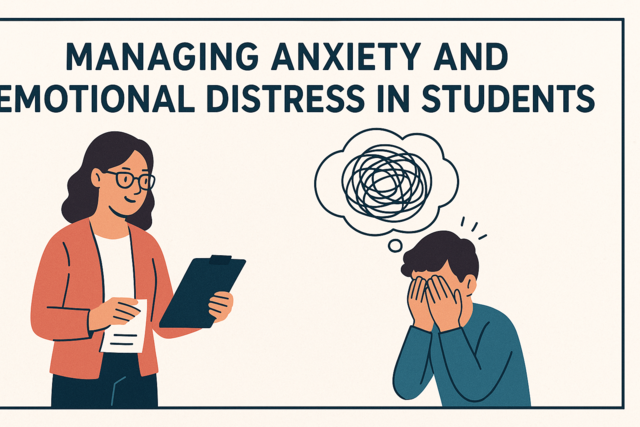 6 hours
0.6 CEUs
Managing Anxiety and Emotional Distress in Students
+ More Info
6 hours
0.6 CEUs
Managing Anxiety and Emotional Distress in Students
+ More Info
-
 4 hours
0.4 CEUs
Energy Medicine: Harnessing Your Body's Power
+ More Info
4 hours
0.4 CEUs
Energy Medicine: Harnessing Your Body's Power
+ More Info
-
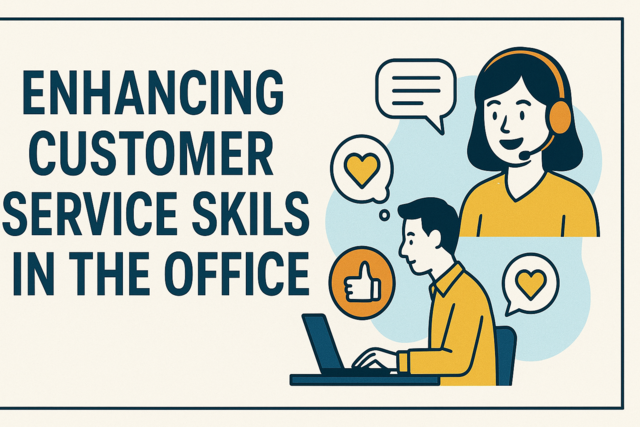 6 hours
0.6 CEUs
Enhancing Customer Service Skills in the Office
+ More Info
6 hours
0.6 CEUs
Enhancing Customer Service Skills in the Office
+ More Info
-
 7 hours
0.7 CEUs
Advanced PowerPoint Presentation Skills
+ More Info
7 hours
0.7 CEUs
Advanced PowerPoint Presentation Skills
+ More Info
-
 7 hours
0.7 CEUs
Basics of Entrepreneurship
+ More Info
7 hours
0.7 CEUs
Basics of Entrepreneurship
+ More Info
-
 7 hours
0.7 CEUs
Effective Time Management for Professionals
+ More Info
7 hours
0.7 CEUs
Effective Time Management for Professionals
+ More Info
-
 7 hours
0.7 CEUs
Emotional Detox: Clearing Pathways to Better Relationships
+ More Info
7 hours
0.7 CEUs
Emotional Detox: Clearing Pathways to Better Relationships
+ More Info
-
 7 hours
0.7 CEUs
Professional Email Communication and Etiquette
+ More Info
7 hours
0.7 CEUs
Professional Email Communication and Etiquette
+ More Info
-
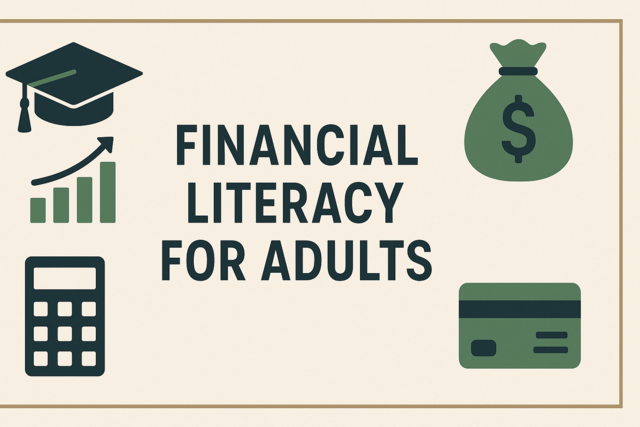 3 hours
0.3 CEUs
Financial Literacy for Adults
+ More Info
3 hours
0.3 CEUs
Financial Literacy for Adults
+ More Info
-
 6 hours
0.6 CEUs
Data-Driven Decision Making in Special Education
+ More Info
6 hours
0.6 CEUs
Data-Driven Decision Making in Special Education
+ More Info
-
 4 hours
0.4 CEUs
The Use of Analytics in Education
+ More Info
4 hours
0.4 CEUs
The Use of Analytics in Education
+ More Info
-
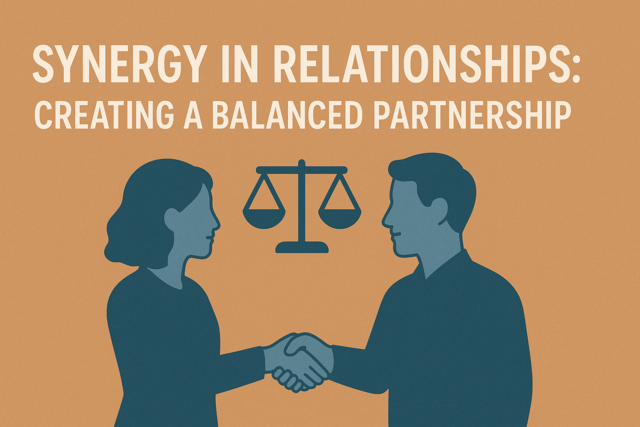 3 hours
0.3 CEUs
Synergy in Relationships: Creating a Balanced Partnership
+ More Info
3 hours
0.3 CEUs
Synergy in Relationships: Creating a Balanced Partnership
+ More Info
-
 4 hours
0.4 CEUs
Understanding Artificial Intelligence
+ More Info
4 hours
0.4 CEUs
Understanding Artificial Intelligence
+ More Info
-
 6 hours
0.6 CEUs
Leadership Skills for Instructional Coaches
+ More Info
6 hours
0.6 CEUs
Leadership Skills for Instructional Coaches
+ More Info
-
 6 hours
0.6 CEUs
Beyond the Runway: Influencing Trends in Modern Luxury
+ More Info
6 hours
0.6 CEUs
Beyond the Runway: Influencing Trends in Modern Luxury
+ More Info
-
 6 hours
0.6 CEUs
Flawless Finish: Understanding Details in Luxury Fashion
+ More Info
6 hours
0.6 CEUs
Flawless Finish: Understanding Details in Luxury Fashion
+ More Info
-
 3 hours
0.3 CEUs
Budgeting and Financial Planning
+ More Info
3 hours
0.3 CEUs
Budgeting and Financial Planning
+ More Info
-
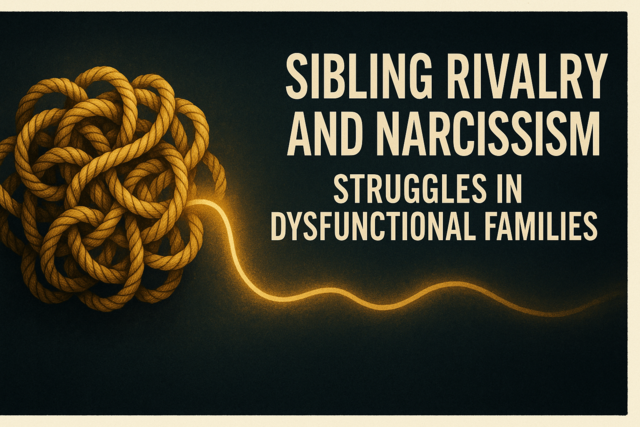 6 hours
0.6 CEUs
Sibling Rivalry and Narcissism: Struggles in Dysfunctional Families
+ More Info
6 hours
0.6 CEUs
Sibling Rivalry and Narcissism: Struggles in Dysfunctional Families
+ More Info
-
 6 hours
0.6 CEUs
Supporting Students with Special Needs
+ More Info
6 hours
0.6 CEUs
Supporting Students with Special Needs
+ More Info
-
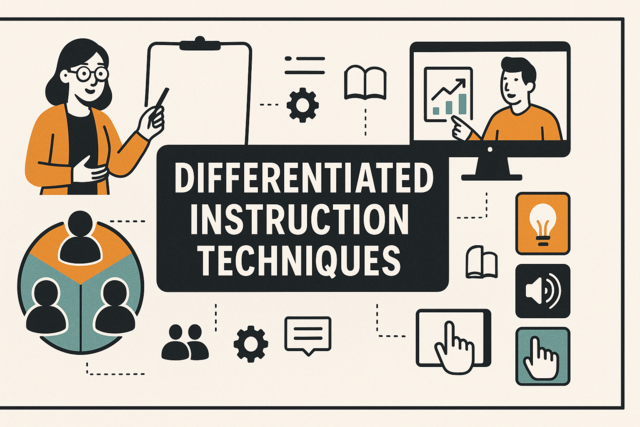 6 hours
0.6 CEUs
Differentiated Instruction Techniques
+ More Info
6 hours
0.6 CEUs
Differentiated Instruction Techniques
+ More Info
-
 7 hours
0.7 CEUs
Guided Meditation Practices
+ More Info
7 hours
0.7 CEUs
Guided Meditation Practices
+ More Info
-
 3 hours
0.3 CEUs
Agile and Scrum Fundamentals
+ More Info
3 hours
0.3 CEUs
Agile and Scrum Fundamentals
+ More Info
-
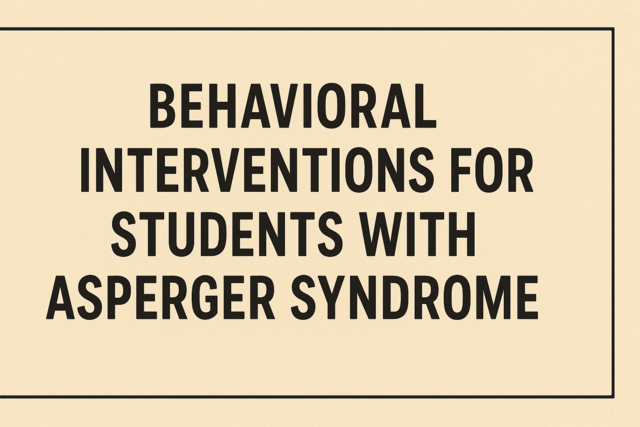 4 hours
0.4 CEUs
Behavioral Interventions for Students with Asperger Syndrome
+ More Info
4 hours
0.4 CEUs
Behavioral Interventions for Students with Asperger Syndrome
+ More Info
-
 5 hours
0.5 CEUs
Footprint of Fashion: Trends Shaping Modern Luxury Brands
+ More Info
5 hours
0.5 CEUs
Footprint of Fashion: Trends Shaping Modern Luxury Brands
+ More Info
-
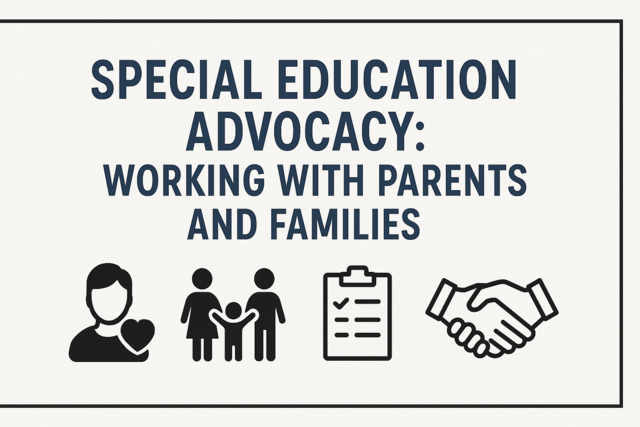 3 hours
0.3 CEUs
Special Education Advocacy: Working with Parents and Families
+ More Info
3 hours
0.3 CEUs
Special Education Advocacy: Working with Parents and Families
+ More Info
-
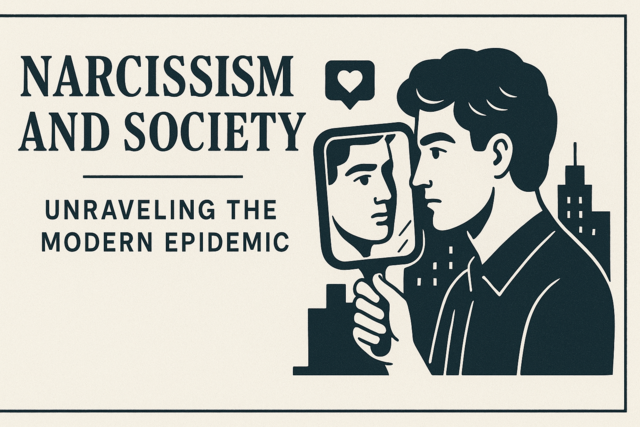 6 hours
0.6 CEUs
Narcissism and Society: Unraveling the Modern Epidemic
+ More Info
6 hours
0.6 CEUs
Narcissism and Society: Unraveling the Modern Epidemic
+ More Info
-
 6 hours
0.6 CEUs
Embracing Digital Transformation
+ More Info
6 hours
0.6 CEUs
Embracing Digital Transformation
+ More Info
-
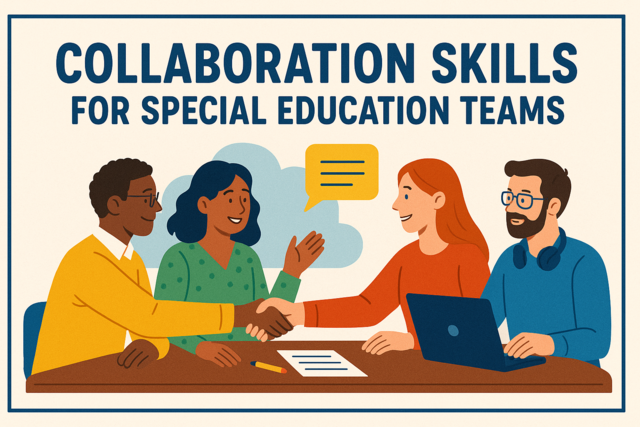 4 hours
0.4 CEUs
Collaboration Skills for Special Education Teams
+ More Info
4 hours
0.4 CEUs
Collaboration Skills for Special Education Teams
+ More Info
-
 5 hours
0.5 CEUs
Data Visualization Techniques
+ More Info
5 hours
0.5 CEUs
Data Visualization Techniques
+ More Info
-
 5 hours
0.5 CEUs
Conflict Resolution: Turning Turmoil into Triumph
+ More Info
5 hours
0.5 CEUs
Conflict Resolution: Turning Turmoil into Triumph
+ More Info
-
 3 hours
0.3 CEUs
Transcend Trends: Creating Your Signature Look
+ More Info
3 hours
0.3 CEUs
Transcend Trends: Creating Your Signature Look
+ More Info
-
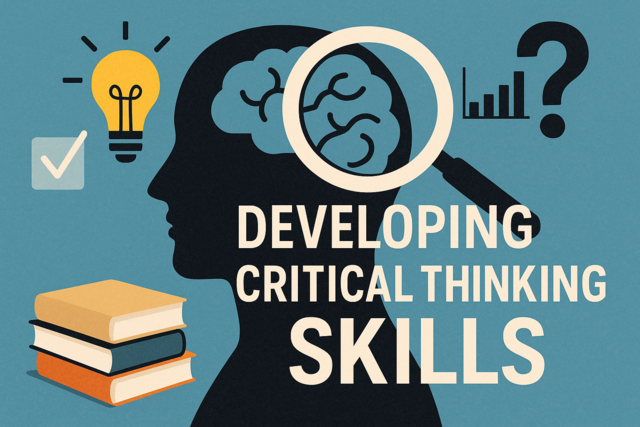 5 hours
0.5 CEUs
Developing Critical Thinking Skills
+ More Info
5 hours
0.5 CEUs
Developing Critical Thinking Skills
+ More Info
-
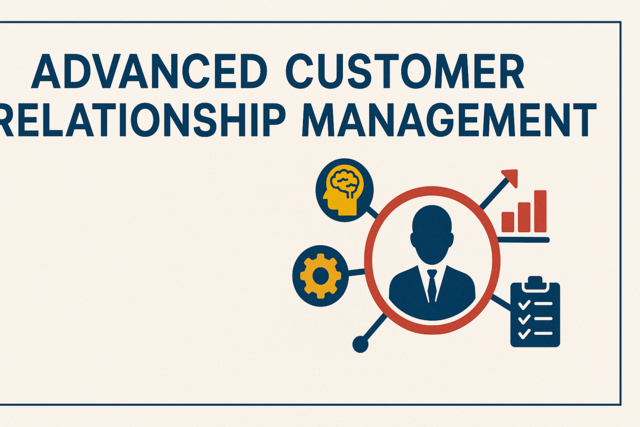 5 hours
0.5 CEUs
Advanced Customer Relationship Management
+ More Info
5 hours
0.5 CEUs
Advanced Customer Relationship Management
+ More Info
-
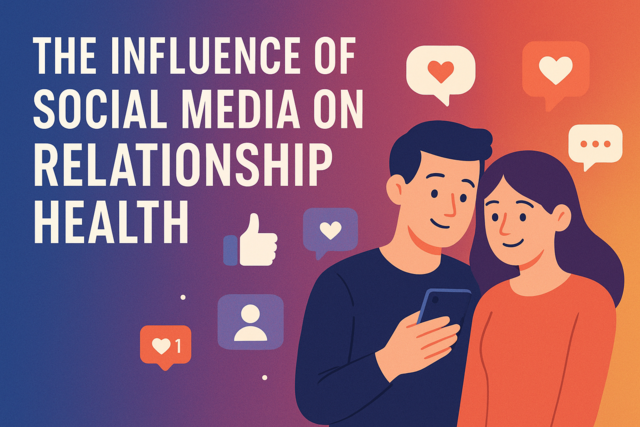 6 hours
0.6 CEUs
The Influence of Social Media on Relationship Health
+ More Info
6 hours
0.6 CEUs
The Influence of Social Media on Relationship Health
+ More Info



